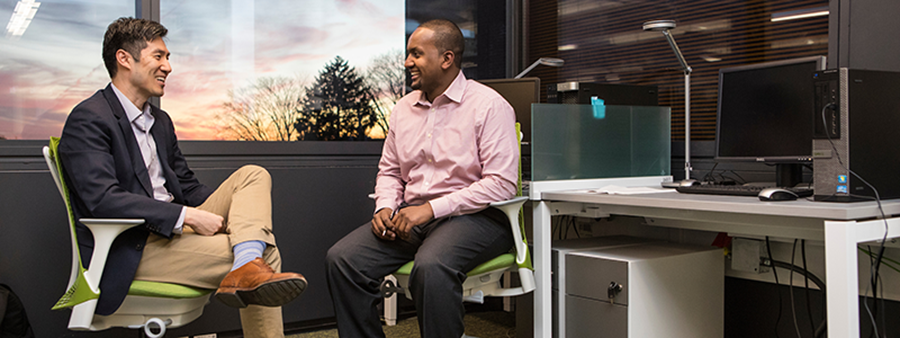Prospective Students

Why Tufts? - Future focus
Chemical and biological engineers work on the future of energy production, catalysis, nanomaterials, biomaterials, environmental engineering, and metabolic and cell engineering. At Tufts, you’ll earn a student-centered education at a top-notch research university, with small classes taught by innovative faculty working at the cutting edge of their fields.
Interdisciplinary education
Grounded in interdisciplinary education and research, our students collaborate closely with faculty and peers in project-based work. Tufts engineering provides students with the tools to cultivate their passions academically and professionally in a dynamic and supportive environment.
Collaborative research
Tufts uses a collaborative and interdisciplinary approach to education and research for all our students, faculty, and staff. Multidisciplinary learning is vital to understanding engineering issues in the context of the larger world. Our flexible undergraduate program challenges traditional curriculum restrictions for students by allowing engineers to choose a second major or a minor from the School of Engineering or the School of Arts & Sciences, while graduate students collaborate with colleagues across the university.
Active learning
Faculty and industry professionals work with students on technical, leadership, and communications skills to bring their knowledge into the public, private, or academic sectors. Located within 5 miles of the engineering hubs of Cambridge and Boston, Tufts School of Engineering is an ideal place to create connections and build your engineering career.